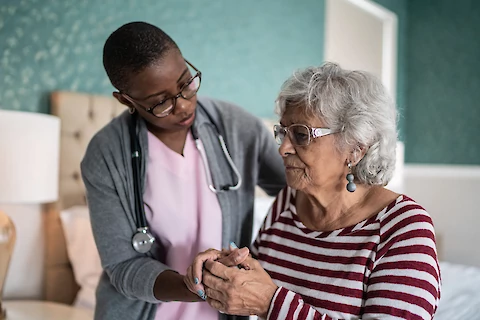
Living with a long-term medical condition like Parkinson's Disease (PD) can be incredibly challenging and stressful, especially for seniors. But with the proper care plan and support structure, seniors can still enjoy an excellent quality of life. This blog post aims to provide an overview of the daily challenges associated with an advanced stage of PD and how you can best help your loved ones living with the condition.
What is Parkinson's Disease?
Parkinson's Disease is a progressive neurological disorder that causes rigid muscles, impaired posture, tremors, and difficulty with balance. The disease slowly destroys cells in the brain over time due to clumps of a protein called alpha-synuclein deposits. These deposits build up and reduce one's ability to move normally or efficiently. Worldwide, there are more than ten million people who live with advanced PD.
What Are the Daily Challenges Living With Advancing Parkinson's Disease?
The challenges faced by a senior with Parkinson's Disease can worsen as the condition progresses. These include:
- Physical: The daily physical challenges seniors face may include limited mobility, tremors, lack of coordination and balance, stiff muscles, and fatigue which can all worsen as the disease progresses.
- Mental: Decreased cognitive function can create memory loss, decision-making abilities, and problem-solving difficulties.
- Emotional: Emotional issues associated with advanced PD can range from feeling overwhelmed to experiencing depression or anxiety over the progression of their illness.
- Social: Social responsibilities such as shopping independently or attending social events without assistance can become challenging for seniors living with PD due to its effects on movement and communication.
How Caregivers Can Support Seniors With Parkinson's Disease
To help manage the daily challenges of advanced PD, caregivers should support their loved ones with a healthy lifestyle that includes simple exercise and good nutrition. Regular physical activity can boost strength, flexibility, and movement control for seniors. Additionally, speech-language or voice therapy can help improve their ability for verbal communication and further aid in regaining mobility.
Caregivers should also consider occupational and complementary therapies such as massage or yoga to reduce mental and physical stress levels. Last but not least, it is crucial to ensure medications are taken at the right frequency and dosage as prescribed by healthcare professionals. Medication helps manage symptoms causing limited mobility or tremors so seniors can retain independence as much as possible.
Find In-Home Support for a Loved One with PD
Living with an advanced stage of Parkinson's Disease can be a challenging experience for seniors and their loved ones. Caregivers in South Bend, Elkhart, Goshen, and Mishawaka should work closely with healthcare providers to help develop an individual care plan to suit the senior's specific needs. We at Senior Helpers of South Bend provide comprehensive in-home senior care services tailored to meet each client's unique requirements. Contact us today if you have any further questions about PD or our professional support services offered in your community.